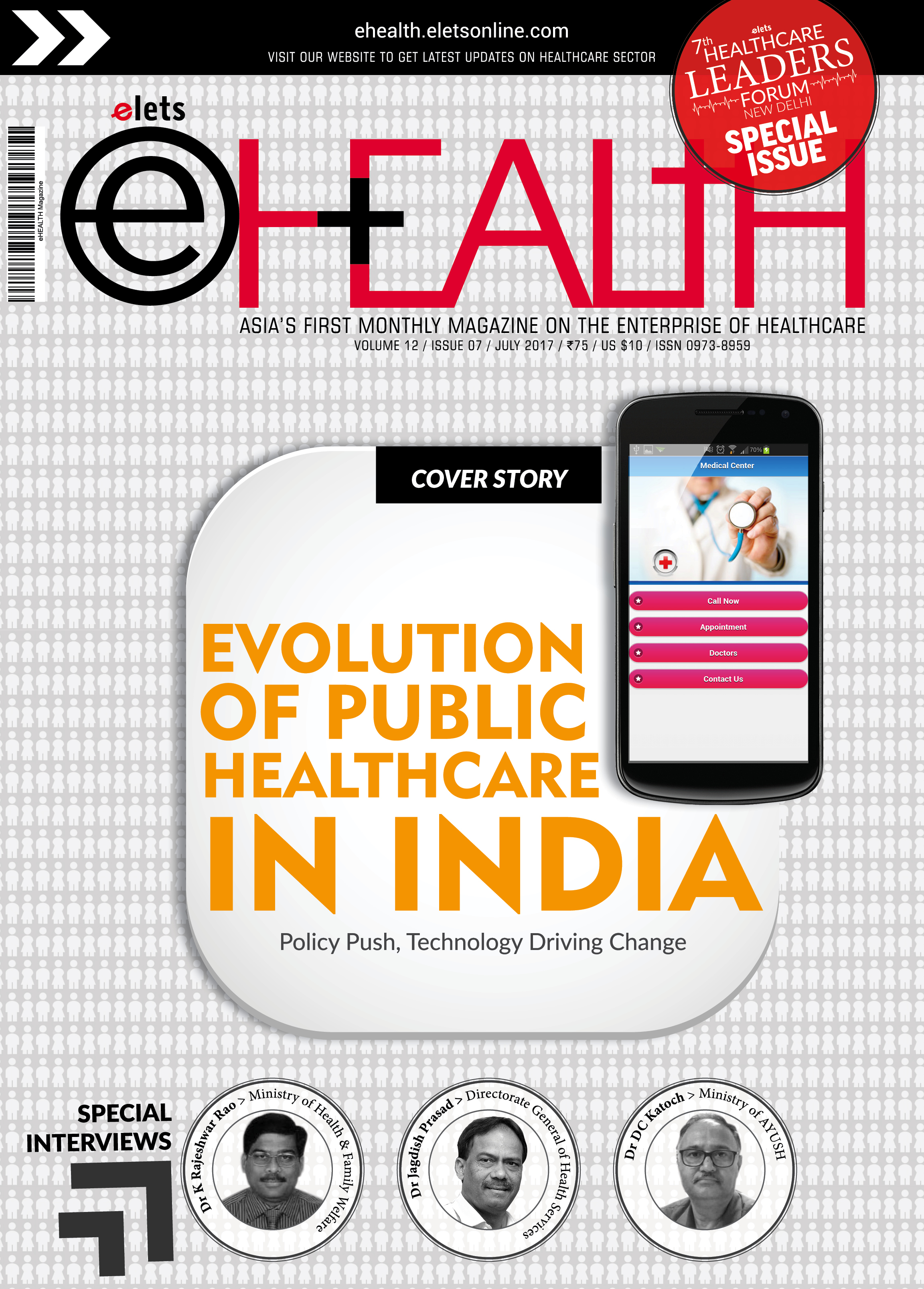
 The National Health Policy 2017 is a positive step towards the overall growth of the healthcare sector. With the government planning to spend 2.5 per cent of the GDP on healthcare, Indian health startups are set to reap huge benefits from this policy initiative, says Krishnamurthy Ramalingam, CEO & MD, Galactic Medical DataBank Private Limited, in conversation with Elets News Network (ENN).
The National Health Policy 2017 is a positive step towards the overall growth of the healthcare sector. With the government planning to spend 2.5 per cent of the GDP on healthcare, Indian health startups are set to reap huge benefits from this policy initiative, says Krishnamurthy Ramalingam, CEO & MD, Galactic Medical DataBank Private Limited, in conversation with Elets News Network (ENN).
Q. How has been the Indian startup ecosystem evolving recently? What are the key challenges for its growth?

The Indian startup ecosystem is growing faster than in any other country, thanks to the encouragement by the government (both Central and State), their policies, technology business incubations in engineering colleges, startup innovation cells at management colleges, and private players providing startup ecosystems at nominal costs, etc.
The key challenges for the startups are:
Governments policies should be focused on job generation rather than innovations to facilitate emergence of startups that can provide more employment opportunities. Startup India Portal (startupindia.gov.in) is a very good initiative. But startups are struggling to get registered on it and get approval due to stringent process of getting Innovation certificate, Funding certificate, etc. It should be simple like Make in Germany initiative that allows anyone to start a company and get the benefits as long as it generates jobs.

Startups should be given grants to implement their solutions at government institutions as proof of concept so that the latest technologies are available at government institutions.
Government can facilitate strategic partnerships between startups and multinational companies in all government projects.
Government procurement policy should include startups in strategic partnership with MNCs.
Government should encourage startups in conferences and exhibitions by providing 100 per cent discount for space, delegate passes, and to pitch their products at national and international level.
Policy makers should involve startup representatives in their decision making processes so that their problems are addressed.
Q. How recent policy initiatives like National Health Policy are impacting healthcare startups in India?
The National Health Policy 2017 is a very positive step with progressive goals set across all areas of healthcare sector. As the government plans to spend 2.5 per cent of the GDP on healthcare, health startups are set to reap benefits from it, provided they are supported in these ways:
Private players, NGOs and nonprofit organisations are encouraged to run primary, secondary and tertiary health centres so that remote areas in north-eastern states and Union Territories like Andaman and Nicobar and Lakshadweep develop quality healthcare delivery system.
Free ecosystems are provided to startups to develop bio-medical devices, healthcare IT solutions, bio-pharma, organic farming, etc.
To offer health insurance to every citizen, like in Singapore, so that in case of emergencies the patients and their families do not go bankrupt due to financial constraint.
Yoga and meditation centres are run by non-profit organisations at every hospital, school, college, workplace, etc.
Government makes it mandatory for all hospitals and clinics “ both private and public “ to go digital by 2020 by providing incentives like the way it was done in the US.
Policy to ensure that all government officials including MLAs, MPs, and ministers receive treatment from government hospitals only.
Making it mandatory that within 12 hours of receiving request from the patient, the healthcare provider should provide the entire medical history present with them to the patient.
Electronic medical record is made a legal record to boost digital health.
Telemedicine and tele-consultation encouraged at all levels.
Tele-education and CME credits should be made mandatory for yearly renewal of licenses of both nurses and physicians.
Q. What role is Information Technology (IT) playing in the growth of startups in healthcare space?
Healthcare IT startups are trying to solve the problems faced by healthcare organisations using latest technologies and innovations. Efficiency and proficiency of healthcare providers are improved with the healthcare IT solutions by startups. Innovative, cost effective, qualitative and disruptive solutions are replacing the old legacy systems. Physical storage spaces for maintaining medical records are saved because of electronic medical record. Insurance claims and reimbursements have been made faster and convenient for claimants. Patients are able to get medicines at their doorsteps using e-medicine portals. Assisted health professionals services can be made available at home through portals which are really transforming the healthcare sector for elderly and palliative patients.
Healthcare IT startups are trying to solve the problems faced by healthcare organisations using latest technologies and innovations. Efficiency and proficiency of healthcare providers are improved with the healthcare IT solutions by startups.
Q. Which areas in healthcare sector hold the potential for growth?
Health IT software and services, affordable medical devices, bio-pharma, medical insurance, healthcare services, pharmacy chains, diagnostics centres, homecare, etc are some of the areas for potential growth in India.
Be a part of Elets Collaborative Initiatives. Join Us for Upcoming Events and explore business opportunities. Like us on Facebook , connect with us on LinkedIn and follow us on Twitter , Instagram.












